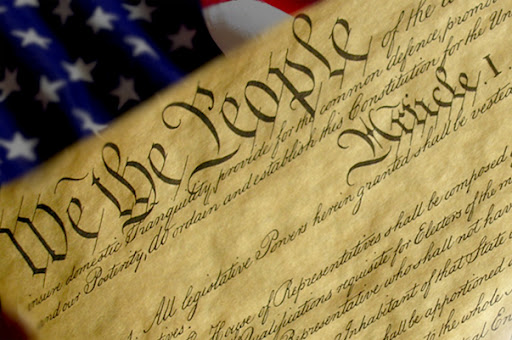
Analysis
Interfaith Alliance Releases New Resource on Christian Nationalism
For millions of Americans, the Jan. 6th insurrection demonstrated the potential threats our nation faces from anti-democratic forces. While the mob that attacked the U.S. Capitol included self-identified Proud Boys, Three Percenters, and other far right groups, some of the most indelible images from that day prominently featured religious symbols and language. In the aftermath, many are coming to understand the threat of Christian nationalism for the first time. On September 28, 2022, Interfaith Alliance released A Concise Introduction to Christian Nationalism to clarify the dangers of this growing movement.
What is Christian Nationalism?
Christian nationalism is a cultural framework that conflates American identity with an exclusive form of religious identity. Rooted in the myth that we were founded as a Christian nation and therefore enjoy special favor by God, proponents of Christian nationalism seek a fusion of religious and civil life - to the detriment of both.
Christian nationalism draws on the symbols and language of Christian religious life in service of a political and cultural goal. Yet the “Christian” elements of this ideology are more about identity than religion. Christian nationalism incorporates anti-democratic notions of white supremacy, nativism, patriarchy, and authoritarianism, seeking to concentrate power in a select group.
As a national advocacy organization that champions true religious freedom, Interfaith Alliance has been monitoring the growth of Christian nationalism with alarm and raising concerns about politicians who proudly embrace its tenets. Former President Rabbi Jack Moline said about the Jan. 6 insurrection that “at the root of the attempted coup is Christian nationalism, the notion that the United States is by intention and right a country ordained to be established and governed by a certain interpretation of the Christian faith.”
Where Do We Go from Here?
Our introduction to Christian nationalism provides readers across party and ideology with the language and background to recognize Christian nationalism in their own communities, school boards, state legislatures, and more. The primer also includes recommendations for further resources that examine the threat of Christian Nationalism and its hold on the United States.
The freedom to believe as we choose is a fundamental component of our national identity. We refuse to cede ground to anti-democratic activists who seek to recast religious freedom as a license to discrimination. True religious freedom protects people of all faiths and none. By learning to recognize and reject Christian nationalism in a unified voice, we can finally deliver on our nation's foundational promises.
On Sept. 28, 2022, Interfaith Alliance hosted a briefing on Capitol Hill to discuss the dangers of Christian Nationalism, which are outlined in our new resource. Click here to view a recording of the briefing.
Transcript

Pluralism is Democracy in Action
On July 4, America will mark 250 years since the signing of the Declaration of Independence. That day in 1776, the nation’s founders put forward a bold vision for a new democratic experiment, one rooted in shared values, with power derived from the people rather than imposed by a monarch or religious authority:



